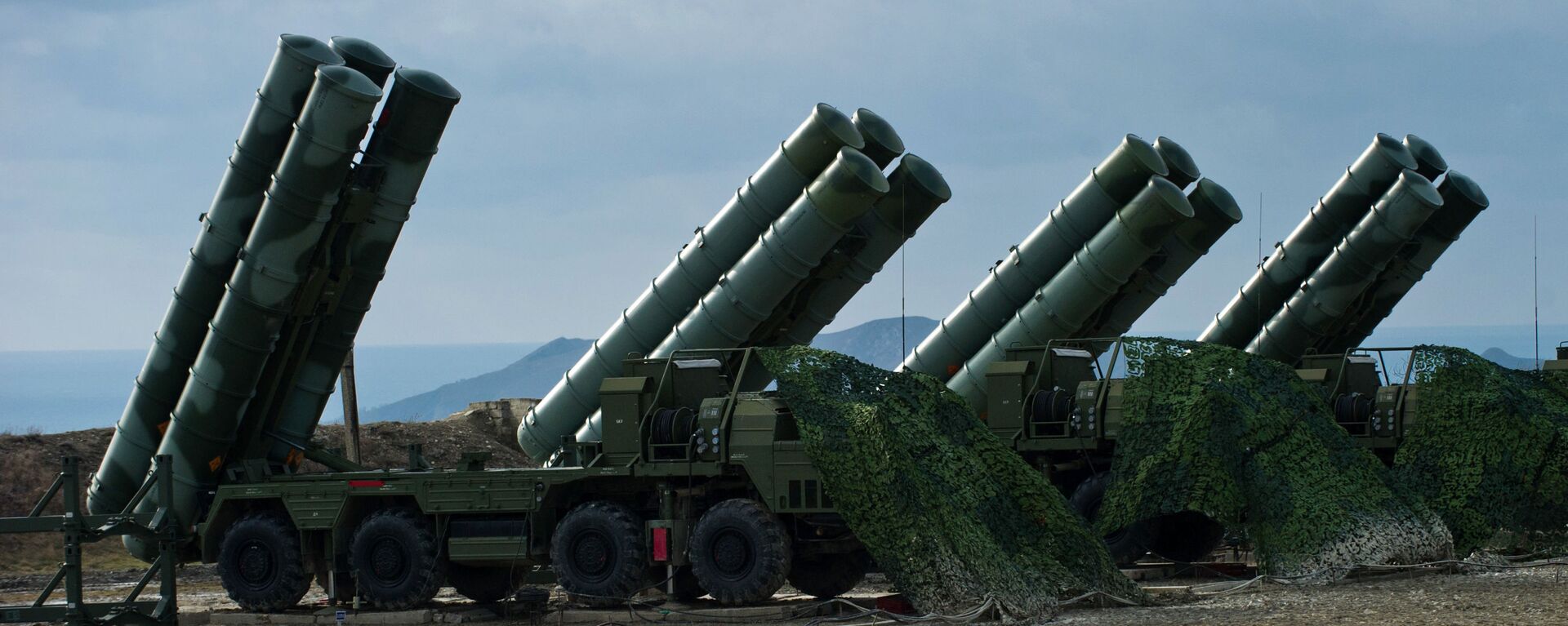https://sputniknews.in/20250514/india-not-sharing-any-hydrological-info-with-pakistan-9121456.html
India Not Sharing Any Hydrological Info with Pakistan
India Not Sharing Any Hydrological Info with Pakistan
Sputnik India
India won’t be sharing any hydrological data with Pakistan as the Indus Water Treaty (IWT) continues to remain in abeyance.
2025-05-14T16:07+0530
2025-05-14T16:07+0530
2025-05-14T17:42+0530
narendra modi
pakistan
india
ministry of external affairs (mea)
world bank
pahalgam terror attack
operation sindoor
terror charges
anti-terror laws
terror outfits
https://cdn1.img.sputniknews.in/img/07e9/04/18/9020531_0:0:1280:720_1920x0_80_0_0_488dbf07f297ddcec472803cbeaed478.jpg
India won’t be sharing any hydrological data with Pakistan as the Indus Water Treaty (IWT) continues to remain in abeyance, an Indian source told Sputnik India.India issued an official notification putting the Indus Water Treaty in abeyance on 24 April at 11 PM IST, another source told Sputnik India, effectively pausing the sharing of hydrological data from that day onwards.In his first public address since India launched Operation Sindoor, PM Modi emphasised that any talks with Pakistan would focus solely on terrorism and Pakistan-administered Kashmir.Addressing the weekly briefing on Tuesday evening, Ministry of External Affairs (MEA) Spokesperson Randhir Jaiswal told reporters that India would keep the IWT in abeyance "until Pakistan credibly and irrevocably, abjures its support for cross-border terrorism". The decision was taken during the Cabinet Committee on Security (CCS) meeting chaired by PM Modi on 23 April, a day after the Pahalgam terrorist attack.Jaiswal also pointed out that factors such as "climate change, demographic shifts and technological changes have created new realities on ground", a reference to India's demand to renegotiate the terms of the 1960-era treaty brokered by the World Bank.In an interview broadcast on CNN on 10 May, Pakistan's Deputy Prime Minister/Foreign Minister Ishaq Dar warned that India's decision was a major "provocation" which if not rolled back, would be seen as an "act of war". Under the terms of the Indus Water Treaty, India has the right of "unrestricted" use of the three eastern rivers — Sutlej, Beas and Ravi. On the other hand, Pakistan had been allowed the "unrestricted use" of western rivers — Indus, Jhelum and Chenab — without interference, except for non-consumptive use, agricultural use and for generation of hydro-electric power (within permissible limits). The importance of hydrological data for Pakistan can't just be understated, not only during the upcoming monsoon season but also at times when there is a sudden deluge of water in the upper riparian state, the coordinator at the South Asia Network on Dams, Rivers and People (SANDRP), Himanshu Thakkar explained in a conversation with Sputnik India.Around 80% of Pakistan's water comes from the Indus basin, making the rivers extremely critical for the nation's water and food security, river expert noted.Further, Thakkar emphasised that the de-silting of the rivers was another major factor.The river expert said that the desilting exercise or the unpredictability in the river flow would have a direct impact on Pakistan's 'Kharif' crops (rice, maize, pulses, mango, etc). In the Subcontinent, Kharif crops are usually sown around April-May and harvested at the onset of winter.He also assessed that industries such as fisheries could be impacted in Pakistan, which also risks creating water shortages in the short run.According to a report in Pakistani daily Dawn, India's decision to close down the gates of Baglihar, Salal and Pakal Dul dams resulted in the water flow in the Chenab River reducing from 35,000 cusecs to 3,100 cusecs on 5 May. "While Pakistan does have major dams on the rivers Jhelum and Indus, it only has the Marala waterworks on the Chenab river, which is in essence a diversionary structure. It doesn't have the capacity to store water," he said.
https://sputniknews.in/20250513/masterclass-in-fact-checking-pm-modi-busts-pakistans-claims-about-s-400-destruction-9114973.html
pakistan
india
indus river
Sputnik India
feedback.hindi@sputniknews.com
+74956456601
MIA „Rossiya Segodnya“
2025
Dhairya Maheshwari
https://cdn1.img.sputniknews.in/img/07e6/0c/13/138962_0:0:641:640_100x100_80_0_0_2cb44360dbcdf6d84bf4b299cd045917.jpg
Dhairya Maheshwari
https://cdn1.img.sputniknews.in/img/07e6/0c/13/138962_0:0:641:640_100x100_80_0_0_2cb44360dbcdf6d84bf4b299cd045917.jpg
News
en_IN
Sputnik India
feedback.hindi@sputniknews.com
+74956456601
MIA „Rossiya Segodnya“
Sputnik India
feedback.hindi@sputniknews.com
+74956456601
MIA „Rossiya Segodnya“
Dhairya Maheshwari
https://cdn1.img.sputniknews.in/img/07e6/0c/13/138962_0:0:641:640_100x100_80_0_0_2cb44360dbcdf6d84bf4b299cd045917.jpg
indus water treaty, pakistan news, india pakistan war, india pakistan news, chenab dams, baglihar project, floods in pakistan, hydrological data, indus data, kharif season, pakistan food security, pakistan crops, salal dam, modi speech, modi news
indus water treaty, pakistan news, india pakistan war, india pakistan news, chenab dams, baglihar project, floods in pakistan, hydrological data, indus data, kharif season, pakistan food security, pakistan crops, salal dam, modi speech, modi news
India Not Sharing Any Hydrological Info with Pakistan
16:07 14.05.2025 (Updated: 17:42 14.05.2025) Pakistan has warned that India's decision to keep the Indus Water Treaty (IWT) in abeyance could threaten the "ceasefire" reached on 10 May, while reiterating that not resolving the water issue would be considered as an "act of war".
India won’t be sharing any hydrological data with Pakistan as the Indus Water Treaty (IWT) continues to remain in abeyance, an Indian source told Sputnik India.
"If they want to talk about the Indus Water Treaty, they should first abandon support for cross-border terrorism," the source stressed, echoing the remarks of Prime Minister Narendra Modi, who said in a televised address on Monday that "blood and water can't flow together".
India issued an official notification putting the Indus Water Treaty in abeyance on 24 April at 11 PM IST, another source told Sputnik India, effectively pausing the sharing of hydrological data from that day onwards.
In his first
public address since India launched Operation Sindoor, PM Modi emphasised that any talks with Pakistan would focus solely on terrorism and Pakistan-administered Kashmir.
Addressing the weekly briefing on Tuesday evening, Ministry of External Affairs (MEA) Spokesperson Randhir Jaiswal told reporters that India would keep the IWT in abeyance "until Pakistan credibly and irrevocably, abjures its support for cross-border terrorism". The decision was taken during the Cabinet Committee on Security (CCS) meeting chaired by PM Modi on 23 April, a day after the Pahalgam terrorist attack.
"The IWT, the Indus Waters Treaty, was concluded in the spirit of goodwill and friendship as specified in the preamble of the treaty. However, Pakistan has held these principles in abeyance by its promotion of cross-border terrorism for several decades now," the MEA spokesperson said.
Jaiswal also pointed out that factors such as "climate change, demographic shifts and technological changes have created new realities on ground", a reference to India's demand to renegotiate the terms of the 1960-era treaty brokered by the World Bank.
In an interview broadcast on CNN on 10 May, Pakistan's Deputy Prime Minister/Foreign Minister Ishaq Dar warned that India's decision was a major "provocation" which if not rolled back, would be seen as an "act of war".
Under the
terms of the Indus Water Treaty, India has the right of "unrestricted" use of the three eastern rivers — Sutlej, Beas and Ravi. On the other hand, Pakistan had been allowed the "unrestricted use" of western rivers — Indus, Jhelum and Chenab — without interference, except for non-consumptive use, agricultural use and for generation of hydro-electric power (within permissible limits).
The importance of hydrological data for Pakistan can't just be understated, not only during the upcoming monsoon season but also at times when there is a sudden deluge of water in the upper riparian state, the coordinator at the South Asia Network on Dams, Rivers and People (SANDRP), Himanshu Thakkar explained in a conversation with Sputnik India.
Around 80% of Pakistan's water comes from the Indus basin, making the rivers extremely critical for the nation's water and food security, river expert noted.
"Just last week, we saw reports about a sudden surge in the water levels of the Chenab River after India opened two gates of the Baglihar Dam following heavy rainfall on the Indian side. So, definitely, Pakistan could have avoided the situation had it had access to the river flow data. If the Indus Water Treaty had continued to remain in effect, the downstream country could have been alerted and taken necessary measures to minimize the implications," he said.
Further, Thakkar emphasised that the de-silting of the rivers was another major factor.
"Whenever an upper riparian state [India] would undertake a silt flushing exercise, this would inadvertently lead to massive amounts of silt flowing downstream [Pakistan]. A downstream state would be better placed if it knows about this desilting exercise," Thakkar said, adding that India has already initiated the silt-flushing exercise in the Baglihar and Salal dams on the Chenab River since the Pahalgam terrorist attack.
The river expert said that the desilting exercise or the unpredictability in the river flow would have a direct impact on Pakistan's 'Kharif' crops (rice, maize, pulses, mango, etc). In the Subcontinent, Kharif crops are usually sown around April-May and harvested at the onset of winter.
"If the lower riparian state is using the river for lifting water for irrigation purposes, an excessive amount of silt would render that untenable. On the other hand, a very high flow could lead to erosion, which would also be detrimental to Pakistan's interest," Thakkar said.
He also assessed that industries such as fisheries could be impacted in Pakistan, which also risks creating water shortages in the short run.
According to a report in Pakistani daily Dawn, India's decision to close down the gates of Baglihar, Salal and Pakal Dul dams resulted in the water flow in the Chenab River reducing from 35,000 cusecs to 3,100 cusecs on 5 May.
Thakkar pointed out that Pakistan, at present, didn't have the requisite river infrastructure to manage the consequences of India's actions upstream.
"While Pakistan does have major dams on the rivers Jhelum and Indus, it only has the Marala waterworks on the Chenab river, which is in essence a diversionary structure. It doesn't have the capacity to store water," he said.
Lastly, the expert noted that since the Pahalgam terrorist attack, India has already fast-tracked the construction of four projects on the Chenab River- Ratle, Kiru, Kwar and Pakal Dul.



